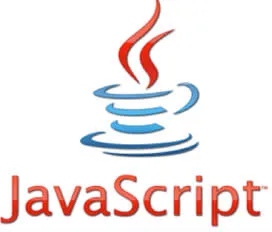Power BI Report Server: Key Features and Elements
Every CTO knows the struggle of managing complex reports. The inefficiency of scattered data, the constant juggling between reporting tools, the challenge of ensuring accurate KPIs...
Kapil Panchal - June 24, 2020
Listening is fun too.
Straighten your back and cherish with coffee - PLAY !

When one talks about Front-end development, the first language that clicks into our mind is JavaScript. Pairing with Hypertext Mark-up Language (HTML) and Cascading Style Sheet (CSS), can render dynamic web pages that look wonderful and much user-friendly. However, we can find many latest JavaScript frameworks with extraordinary libraries inside, that could make our Application development much smoother, flexible, powerful, and provides great performance.
In general terms, we can say that Front-end languages stay in the browser. Suppose you type something in the address bar and press enter, you will be displayed a web page made with Html content at least. And this file states the browser to request a CSS file as well as JavaScript file, hence they all work together jusJavaScriptt keeping it simple. Front-end development plays a crucial role in any kind of project therefore every esteemed Web design and development company keeps high focus on it.

“By far, the overwhelming favourite for frontend development has to be JavaScript. Besides its ubiquity in modern day web applications, there are compelling reasons to select JavaScript as our tool of choice in delivering dynamic, instantly updating and low footprint web applications. JavaScript has advanced massively, perhaps more so than almost any other language or framework, in the last twenty years. The language today is backed by an open standard ECMA-262; currently in its 11th iteration.
Large corporations such as Google and Facebook have joined open source developers in developing and promoting their frameworks of choice (angular.js and react.js respectively) and there is still significant competition in the space as projects like vue.js have sprung up to provide viable alternatives to speed up development and make the language more accessible to a diverse audience. There are public repositories of reusable code for every conceivable task and interface requirement and an exciting ecosystem of support tools for everything from dependency and build management tasks to accessing obscure hardware components.
JavaScript has also evolved to become more than just a frontend programming language; and innovations such as react-native (used to develop mobile applications) have opened up mobile and kiosk environments as new frontiers for JavaScript; in many cases using the same codebase that delivered web frontends.
JavaScript is unmatched as a language with a vibrant ecosystem, millions of committed and experienced developers worldwide, many freely available stellar teaching resources and open source repositories of code that make previously difficult tasks solved problems.”
Azza Shahid, Content Marketing Executive at SIA Enterprises says,
“The language I preferred for frontend development was and will always be JavaScript.
95% of all the popular web pages on the World Wide Web use JavaScript in one form or the other.
HERE ARE THREE REASONS WHY I PREFER “JAVASCRIPT”
It is compatible with all browsers i.e Internet Explorer, Chrome, or Firefox. You do not need to separately install a plugin in order to view Javascript. It has inbuilt Javascript capabilities.
It has an easy debugging option. You can press the F5 button and a debugger will pop up on your screen, which can help you identify the bug, test it, and fix it.
Javascript reduces the loading time of web pages and makes it fast and responsive to users.”
Vance, Front-End Web Developer at Pointer Clicker says,
“1. Which programming language do you prefer for frontend development?
I prefer Javascript for Frontend development. In the frontend world, there is a must to have a skillset of HTML, CSS, and Javascript. Even though Javascript is being used for Frontend and Backend nowadays, it's originally a Frontend language.
2. Why?
Imagine that with HTML, CSS, you could draw a static picture with little to no interaction. Applying Javascript helps you transform that static picture into a cartoon movie with a lot of movement. That's the power of Javascript, the language that is built to run on browsers. Moreover, the Javascript community is broad and well supported. There are plenty of frameworks to choose from, such as ReactJS, Angular, VueJs. You have a lot of options to pick from when it comes to Javascript.”
Christopher Prasad, Marketing Manager at JookSMS,
“I personally prefer to use JavaScript for front-end development. It was what I started with and is still just as useful today as it was back then. It's a very flexible language so it can be used for a lot of projects and it's very easy to use alongside CSS and HTML. Programmers often mix up syntax when managing multiple languages, so using JavaScript can be helpful with this as some syntax errors go overlooked without any errors. Using JavaScript for the front-end is also helpful as it can be used for the back-end too, so the workflow between the two is similar.”
Daniel J. Mogensen, co-founder of Kodyl says,
“Over the years I've come to love JavaScript for front end developing and web-based applications. If that is your end goal, JavaScript is the way to go since it offers you the most value when combined with the knowledge of more front-end frameworks. With the knowledge of JavaScript, you can expand your skill set by learning other frameworks such as Vue and Angular.
Then you can also teach yourself jQuery, one of the most commonly used libraries. This would enable you to get a higher paid programming job such as a UI developer or front-end software engineer. The job opportunities in this field are numerous, but the bottom line is you need to know JavaScript as your foundational programming language if you plan on focusing on web-based applications.”
Jens Oliver Meiert, Owner at Meiert Web Development & Consulting says,
“according to the more common understanding, HTML and CSS, for example, are not programming but document and formatting languages. From this angle, there’s one programming language dominating web frontend development, and that is ECMAScript, as JavaScript. The popularity of JavaScript has several reasons. Historically (though simplistically), JavaScript has been with the Web almost since its inception. And although barely and insufficiently maintained for a very long time, with few new features, JavaScript has especially since 2015 turned into a regularly maintained web standard, which has helped and accelerated its vast adoption.”

Michael Yurushkin, CTO & Founder of Brouton Lab says,
“My favorite framework for front-end development is React and here is why:
It has a simple library and is easy to learn, especially if you have JavaScript skills.
You can build a high-quality UI with fewer efforts using its declarative components.
Number of developer tools and reusable components available for React speed up the developer’s work. You make more money in less time by doing things quickly.”
Eugene Granovsky, Founder of Bellawatt says,
“We spend 30% of our time in coding as a front-end dev. We try to stay framework-agnostic but almost always end up using reactjs - its core concept of storing UI as its own value allows us to make highly modular and flexible products. Plus, the ecosystem is fantastic.”

Edwin Mejia, Full Stack Developer at TITOMA Ltd. says,
“I've been using Angular 2 as a web development framework for a while now. Angular 2 relies on Typescript which is a superset of JavaScript. The ability to define and use Types already makes it a huge improvement over vanilla Javascript. Typescript makes code easier to develop, maintain, and read, reducing overhead in our development time and reducing the frequency of bugs during our development cycle.
Also thanks to the definition of types and interfaces, refactoring code is way easier. A well-defined interface is rock solid, so when changes are done it tells you exactly the kind of things that you are only allowed to do regarding an object or function. Typescript transpiles into Javascript, so it can be read by any browser, thus making it a powerful language for developing front-end applications.”

Rameez Ghayas Usmani from Pure VPN says,
“COBOL underpins the world’s financial infrastructure. Without COBOL, the world economy would literally collapse. So, COBOL applications must continue to be maintained and updated.
Also, for typical business applications, COBOL is a strong language. After all, that’s what it was designed for! And business fundamentals have not changed in over half a century. Corporations that send bills, accept payments, do inventory, investment, offer banking and insurance services use COBOL.
Banks and insurance companies use COBOL, on IBM Mainframes, Iseries but also on UNIX AIX systems. I’ve worked in banks, insurance companies, and software editors (aircraft maintenance and wholesale trade).
I have worked for various companies that tried to replace their IT operations on Cobol/Mainframes with any other programming languages but have either failed to replace or decided against the replacement because of the risks, costs, and complexity involved.”

Every CTO knows the struggle of managing complex reports. The inefficiency of scattered data, the constant juggling between reporting tools, the challenge of ensuring accurate KPIs...

The very first reason why you should implement Row Level Security is to foster trust, a crucial element for any business's success. Next, it reduces data clutter and helps you load...

The performance of Power BI is significantly influenced by two essential factors: design consistency and the rapid loading of BI elements. This holds true whether you choose Tableau...